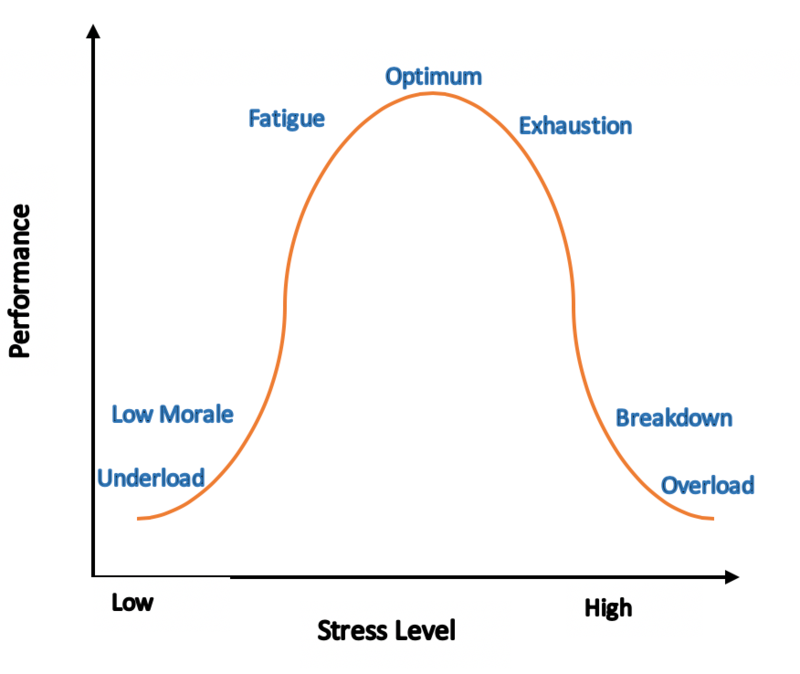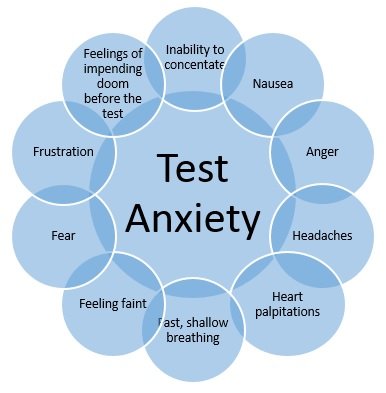Table of Contents
Getting ready for the SAT can make anyone feel nervous. It’s a big test, and you might feel like a lot is riding on your score. But here’s the good news: you can beat test anxiety and do well on your SAT. This guide is all about giving you easy, straightforward tips to help you study for the SAT without all that stress. You’ll learn how to get better at the subjects you’ll be tested on and how to stay calm on the day of the exam. So, let’s get started and make sure you’re ready to win that test!
Ripple Effects of Test Anxiety on SAT Performance

When you get nervous about a test, it’s like a chain reaction. You might start worrying about not doing well, which can make it harder to concentrate when you’re studying or taking a test. This can mean you might not do as well as you know you can. It’s like when you’re so worried about being late that you can’t find your keys – even though they’re right in front of you.
It’s totally normal to feel this way. Lots of people get these test nerves. The important thing is not to let them take over. When you feel yourself getting really worried, try to take a slow, deep breath. Think about all the studying you’ve done and how much you’ve learned. It’s like reminding yourself that you’ve got this, even when part of you is scared.
Anxiety can also mess with your memory. You might have spent a lot of time studying, but when you’re nervous, it’s like your brain gets foggy. You might forget things you know really well. This is why it’s good to have some strategies for dealing with nerves, like taking deep breaths or having a routine on test day that makes you feel calm and ready.
Sometimes, being really anxious can make you rush through the test too fast because you just want it to be over. This can lead to silly mistakes, like not reading a question properly or missing an important part of a problem. It’s a good idea to practice pacing yourself, taking the right amount of time on each question so you don’t rush and make mistakes.
Lastly, remember that it’s okay to feel a bit nervous. A little bit of nerves can actually help you stay alert. But too much worry isn’t good. So, when you start to feel super nervous, remind yourself of the work you’ve done and how prepared you are. Maybe even have a saying or a little routine that helps you feel confident and ready to tackle the test.
Strategizing Against Anxiety: Steps to Optimal Performance

Getting ready for the SAT can make you feel worried. That’s pretty normal. But too much worry can mess with your studying and how well you do on the test. So, let’s talk about some simple ways to keep those nerves under control.
The first step is to make a plan. Just like you might plan out your week to fit in school, hanging out with friends, and maybe a job, you can plan your study time. When you know what you’re studying each day, it helps you feel in control. You can break your studying into small parts, too, so it doesn’t feel so huge. It’s like when you clean your room a little bit at a time instead of all at once.
Now, let’s think about how you’re studying. It’s a good idea to practice like you’re taking the real SAT. Find a quiet place, set a timer, and work on some questions. This helps you get used to how the test will feel. And the more you practice, the less scary the test will seem.
Another good tip is to not just study alone. You can join a study group or find a study buddy. This way, you can help each other out. It’s like when you play a game with friends—it’s more fun, and you can learn from them, too. Plus, talking about what you’re learning can help it stick in your head better.
Also, don’t forget to take breaks. If you try to study for too long without stopping, your brain gets tired and doesn’t remember things as well. So, after some good studying, take a little break. Go for a walk, listen to some music, or just chill for a bit. Then, when you go back to studying, you’ll feel more ready to learn.
Last but not least, remember to be kind to yourself. If you’re feeling really nervous, tell yourself it’s okay. Everyone gets nervous. Just do your best, and know that it’s okay to make mistakes when you’re practicing. It’s all part of getting ready.
Holistic Approaches to Combat Test Anxiety

When you’re getting ready for the SAT, it’s not just about hitting the books. You’ve got to take care of your whole self – your mind and your body. It’s like when you’re on a team – every player has to be in good shape to win the game. So, let’s talk about how to keep your whole self-ready for the SAT.
First, let’s look at your mind. Worrying too much about the test can make it harder to do your best. One way to calm your mind is to find a quiet place every day, even just for a few minutes, and just breathe. Sit down, close your eyes, and take slow breaths in and out. This can help you feel less nervous and clear your head.
Now, your body – it’s important, too. Try to move around a bit every day. It doesn’t have to be anything big. Even a short walk or a bit of stretching can make you feel better. And when your body feels good, your mind does, too. It’s like giving your brain a breath of fresh air.
Eating the right foods helps as well. You know how you feel sleepy after eating a huge meal? Well, eating lots of small, healthy things throughout the day can give you energy. Think about fruits, nuts, and stuff with not a lot of sugar. This keeps your energy up for studying without making you feel too full or sleepy.
Sleep is super important, too. When you sleep, your brain sorts through everything you learned that day. Try to get enough sleep every night. It’s like charging your phone – you need a full battery to work right the next day.
Lastly, talk about how you’re feeling. If you’re feeling really nervous about the SAT, tell someone. It could be your family, a friend, or a teacher. Talking about it can make a big difference. It’s like when you have a problem and you share it, the problem feels smaller and you don’t feel alone.
Tailored Strategies for SAT Excellence
Getting ready for the SAT isn’t one-size-fits-all. Each person is different, and what works for your friend might not work for you. It’s like when you wear clothes that fit just right—you feel good and comfortable. Studying for the SAT is the same. You want to find ways to study that fit you perfectly.
First, think about when and where you like to study. Some people like to get up early in the morning when it’s quiet. Others might like to study a little bit at night. And for places, maybe you like your desk at home or a corner in the library. Find a spot where you can focus and feel good about studying.
Next, let’s talk about how you like to learn. Do you like to read and write things down? Or do you remember stuff better when you hear it? Some people like to see information in pictures or charts. Knowing this can help you pick the right way to study. If you’re not sure, try different ways and see what feels best.
Also, it’s good to mix things up a bit. If you just keep doing the same thing, it can get boring. And when you’re bored, it’s harder to learn. Try different kinds of questions, or switch between reading and doing practice problems. This keeps your brain awake and ready to learn new things.
And here’s something else: don’t be afraid to ask for help. If something’s tough for you, maybe a teacher or a friend can explain it in a way that makes more sense. Everyone needs help sometimes, and getting a little help can make a big difference.
The last part is to keep track of how you’re doing. When you get something right, it feels great. But when you get something wrong, that’s a chance to learn. Look at the mistakes and figure out why you missed it. This helps you get better and better.
Leveraging Technology for SAT Preparation & Mitigation Strategies

When you’re getting ready for the SAT, it’s smart to use all the help you can get. And nowadays, there’s a bunch of cool tech stuff that can give you a hand. We’re talking about apps on your phone, websites full of practice questions, and videos that can teach you all sorts of tricks and tips. They’re easy to use and can make studying a bit more fun.
For starters, some apps let you practice questions anywhere – like when you’re waiting for the bus or during lunch break. These apps keep track of what you’ve learned, so you can see how much better you’re getting over time. It’s a good way to squeeze in some extra practice without having to lug around a bunch of books.
Then there are websites. Some websites have lots of practice tests that are just like the real SAT. When you take these tests, it’s like a practice run for the big day. You’ll get used to how long the test is and the kind of questions they’ll ask. Plus, these websites often have tips on how to tackle the tricky questions you might bump into.
Videos can help a lot, too. Sometimes reading about how to solve a math problem isn’t enough – you need to see someone do it step by step. There are loads of videos out there where teachers and other students show you how to work through problems. Watching these can help you get the hang of things, especially when you’re stuck.
But here’s the thing – you can’t just rely on tech. It’s a big help, sure, but the real work comes from you. The tech tools are like having a coach or a helper. They can guide you and give you tips, but they can’t do the running for you. You’ve got to put in the time to study, to think about the questions, and to really understand the answers.
And one last point – don’t let all this tech stuff cut into your sleep or make you stressed. It’s there to help you study smarter, not harder. Use it in a way that feels right for you. Maybe set some time each day when you’re going to use these tools, and then put them away. This keeps your study time balanced and keeps you from burning out.
Key Takeaways
As you finish up your SAT prep, there are some big things to keep in mind. These tips aren’t just about helping you get a higher score. They’re about making you feel ready and calm, so you can walk into the test room feeling good.
First off, it’s okay to feel a bit worried about the SAT. You’re not alone—lots of people feel the same. The good news is you can get past it. The more you practice, the less scary the test will feel. Think of each practice test as a step toward feeling more at ease. You’re not just learning stuff for the test; you’re also learning how to beat those test-day jitters.
Next, remember to take breaks and not study all the time. Your brain can’t go full speed non-stop. It’s like when you’re running: if you don’t slow down sometimes, you’ll wear yourself out. Make sure you sleep well, eat food that’s good for you, and get up and move around. This keeps your brain happy and ready to learn.
Another big point is to find your study groove. Some folks like quiet places, others might like a little background noise. Some like to study in groups, and some like to study alone. There’s no right or wrong way—just what works best for you. When you study in a way that fits you, it can make a huge difference. It’s less stressful, and you remember more.
Also, use the tools that are out there. There are apps and websites made just for SAT prep. They can give you extra practice and new ways to look at problems. But remember, these are just tools to help you along. They’re not the only way to study. Keep doing what works for you and use these tech tools as a bonus.
Lastly, keep these questions in mind: “How much should I study?” Don’t overdo it—a few hours of good study can be better than a whole day where you’re not really into it. “What if I’m still nervous on test day?” That’s totally normal. Take deep breaths and focus on the questions, one at a time. “Am I ready for this?” If you’ve been sticking to your study plan and putting in the work, trust yourself. You can do this!
FAQs
-
How much should I study each day for the SAT?
It’s best to study for a couple of hours each day instead of trying to do it all at once. Think of it like a marathon, not a sprint. You want to spread out your studying so you don’t get too tired or overwhelmed.
-
What if I still feel nervous on test day?
Feeling a bit nervous is normal. Try taking deep breaths and focus on one question at a time. Remember, you’ve prepared for this, and it’s okay to be a little nervous.
-
Can talking to someone help reduce my test anxiety?
Absolutely! Talking about your worries can make them feel smaller. Share how you’re feeling with a friend, family member, or teacher. It helps to know you’re not alone.
-
Is it better to study alone or in a group?
It depends on what you like. Some people learn better with others, while some prefer to study alone. Try both and see what works best for you.
-
How can I stop myself from rushing during the test?
Practice pacing yourself. While studying, time yourself like it’s the real test. Learn to take just the right amount of time on each question.
-
Should I use technology for SAT prep?
Yes, tech tools like apps and websites are great for extra practice. But remember, they are just tools to help, not the only way to study.
-
What are some good ways to relax when I’m feeling stressed about the SAT?
Try taking short walks, doing some light stretching, or even listening to your favorite music. These can help clear your mind and reduce stress.
-
How do I know if I’m ready for the SAT?
If you’ve been sticking to your study plan and understand the material, trust in your preparation. You’re probably more ready than you think!
-
What should I do the night before the SAT?
Relax and get a good night’s sleep. Avoid cramming or staying up late. Think about something calming, and remember all the hard work you’ve put in.
-
Is it normal to forget things because of test anxiety?
Yes, it’s common. Anxiety can make it hard to remember even things you know well. This is why practicing relaxation and having a test-day routine are important.
We hope you found this article helpful and that the tips we’ve shared make your SAT preparation a bit easier and a lot less stressful. Remember, it’s not just about hard work; it’s also about smart work and taking care of yourself.
If you liked what you read here, be sure to check out our other articles. We’ve got a bunch of resources and guides that can help you get even more prepared for the SAT. From subject-specific strategies to general study tips, we’re here to support you every step of the way. Good luck with your SAT prep, and remember, you’ve got this!
